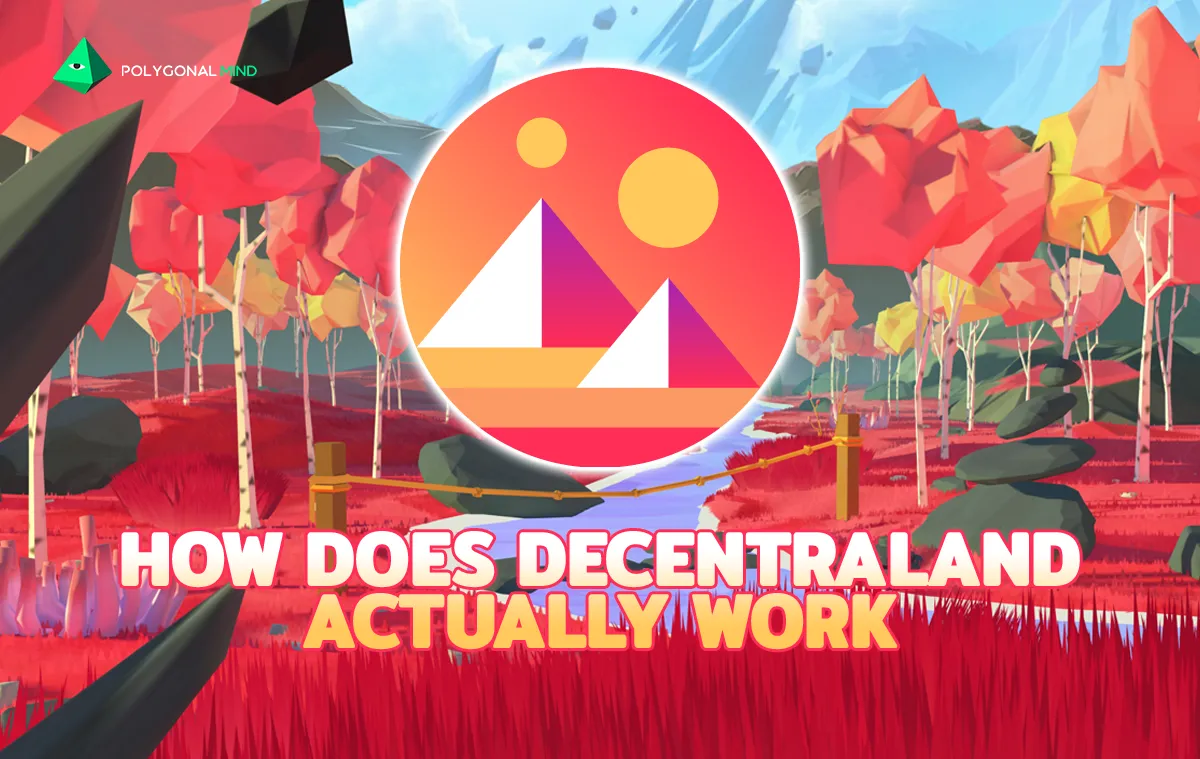INTRODUCTION
The purpose of Decentraland is to create a virtual world where its users may act in the same way they do in the real world. This encompasses the users ability to socialize, to explore, to do business and make digital money, and to make purchases and trades all within the Decentraland virtual world.
This appears to be a daunting task to accomplish. So, in this subsection of the Leo Finance Decentraland Coin Guide, let's find out just how Decentraland (MANA) works.
How does Decentraland (MANA) Work?
For proper functioning, Decentraland's structure is divided into three layers:
- LAYER 1: Consensus Layer - functions with the responsibility of tracking the 'game' operations through the creation of blockchain recording of all such game actions.
- LAYER 2: Content Layer - functions as the storage area for all the information necessary to be used to render content in the metaverse. In keeping the system as efficient as possible each user possesses a portion (or in some cases all) of the data necessary for rendering.
- LAYER 3: Real-time interaction layer- functions so as to permit real-time interactions among users within the protocol.
The MANA and LAND tokens play an integral role in the operation of Decentraland
The Mana token serves two important roles in the Decentraland ecosystem:
- it enables users to buy and sell land within the protocol.
- it acts as the governance token for the ecosystem permitting its holders the right to participate in Decentraland's governance.
MANA is an ERC-20 standard token on the Ethereum blockchain. By design, the MANA tokens are limited in number to 2,194,460,527 tokens which operates to make the token more valuable as the use of Decentraland increases.
LAND is an ERC-721 standard token on the Ethereum blockchain. Each individual LAND token uniquely represents one parcel of Land with all its unique characteristics owned by the user/holder. When a user acquires the LAND token, the user exchanges MANA tokens for the LAND token which MANA tokens are burned increasing scarcity and value.
As with MANA, the LAND tokens are limited in number as there exists only 90,601 parcels of land in the ecosystem. When two adjacent land parcels are owned by the same user, the user becomes the owner of an ESTATE token, the importance of which is both the LAND and ESTATE tokens confer participation in the ecosystem's governance.
So as to facilitate publication and offers for buying/selling on the Decentraland Marketplace, categorization of collectibles is essential
Each of the collectibles within the Decentraland ecosystem are classified as follows:
- Common: for items with a stock equal to or greater than 100.000 units.
- Uncommon: for with a stock no greater than 10.000 units.
- Rare: for items with a stock no greater than 5000 units.
- Epic: for items with a stock no greater than 1000 units.
- Legendary: for items with a stock no greater than 100 units.
- Mythical: for with a stock no greater than 10 units.
- Unique: for items for which only one unit exists.
Without this, the Decentraland Marketplace would have no structure, function, or price equity. As such, this categorization plays an integral role in the efficacy and efficiency of the ecosystem.
Ecosystem governance is essential to the continued operation of Decentraland
Decentraland is governed by a Decentralized Autonomous Organization, which means the users who own either MANA, LAND, or ESTATE tokens decide which direction the development of the ecosystem should proceed. This need for governance is self-explanatory.
Voting rights
- MANA: to participate in governance, MANA token holders must convert their MANA to wrapped MANA (wMANA) by transferring their tokens to the DAO's smart contract. Each wMANA yields the user one unit of voting power. Note, that once MANA is wrapped, it cannot be spent or otherwise transferred until such time as it is unwrapped (thereby losing its voting power).
- LAND: to participate in governance, LAND token holders must likewise register their tokens with the DAO however no similar restriction is placed on them and they may be used as normal. Each LAND yields the user 2000 units of voting power.
- ESTATE: to participate in governance, ESTATE token holders must likewise register their tokens with the DAO however no similar restriction is placed on them and they may be used as normal. Each ESTATE yields the user 2000 units of voting power for each individual LAND contained therein.
CONCLUSION
A completely new style of virtual world emanates from the decentralized structure of Decentraland. The platform provides the user a new opportunity to fully own and control the user value created in the virtual world with the added ability to transfer this value to the real world at will.
As such, Decentraland is so much more than a typical video game.
